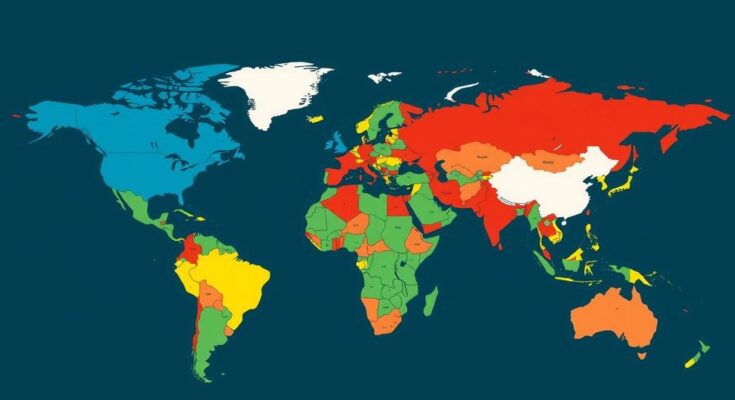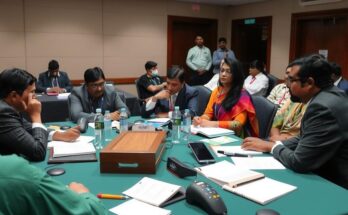Richer countries are beginning to compensate poorer nations for climate change-related damages. Cyclone Freddy’s devastating impact in Malawi prompted financial aid, highlighting the urgent need for a comprehensive ‘loss and damage’ fund. Around $720 million has been pledged so far, but experts caution that this may fall short as severe weather events continue to escalate. Discussions at COP29 aim to outline financial responsibilities and allocations to support vulnerable nations.
Richer nations are increasingly acknowledging their responsibility to assist poorer countries in addressing the damages caused by climate change. Following the devastating effects of Cyclone Freddy in Malawi, where significant flooding forced thousands into displacement, one such individual, Christopher Bingala, received approximately $750 as part of a climate-related compensation initiative. This funding, part of a broader ‘loss and damage’ compensation strategy, is designed specifically to support those affected by climate disasters.
In 2022, wealthier nations pledged to create a fund to address the consequences of climate change, with around $720 million promised. However, experts caution that this amount may be inadequate given the growing severity of climate-related disasters. During the COP29 climate summit in Azerbaijan, discussions are ongoing regarding the financial obligations owed to developing nations, as they grapple with more intense storms despite contributing minimal greenhouse gas emissions.
In Malawi, Cyclone Freddy’s impact was catastrophic, displacing approximately 650,000 individuals and leaving many, such as Bingala, without their homes or means of subsistence. Bingala shared the harrowing experience of relying on food from deceased livestock during the crisis. The cash payment he received enabled him to relocate his family and rebuild their lives in a safer area. Support has been provided through initiatives like those from GiveDirectly, a non-profit that ensures cash grants are distributed without conditions.
The Malawi payment initiative is seen as a model for a comprehensive system to compensate lower-income nations for climate-related damages. As natural disasters become more frequent and severe, the need for such loss and damage funding is projected to escalate dramatically, with estimates reaching $250 billion annually by 2030. Leaders like Philip Davis, Prime Minister of the Bahamas, emphasize the urgency of international cooperation and funding to address these escalating challenges.
Without aggressive action and funding commitments from wealthier nations, the consequences of climate change are likely to uphold humanitarian crises that transcend national borders. As Davis poignantly stated, the futility of inaction could result in dire consequences for populations facing the threat of environmental displacement.
The phenomenon of climate change has led to increasingly damaging weather events, disproportionately affecting less affluent countries that contribute minimally to global emissions. With rising global temperatures, nations such as Malawi and the Bahamas find themselves contending with severe weather, which exacerbates existing vulnerabilities. In response, wealthy nations have started to acknowledge their role and responsibility in addressing the impact of these disasters by providing financial support to help rebuild lives and communities devastated by climate change.
In summary, the acknowledgment by wealthier nations to compensate poorer countries for climate-related damages marks a crucial step towards addressing the inequities exacerbated by climate change. While funds are being pledged, the actual financial support must be translated into effective action to alleviate the growing burden on vulnerable nations facing environmental crises. As global leaders negotiate funding at COP29, it is essential that agreements include comprehensive strategies for both disaster recovery and preventive measures to protect communities at risk.
Original Source: www.southcarolinapublicradio.org




